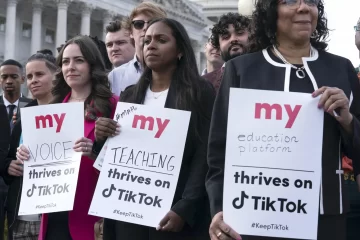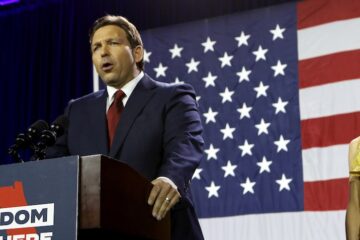We know that the Russian government interfered in last year’s US presidential election. That is without question. What remains to be seen is whether the Trump campaign colluded with them.
The chorus of concern over alleged ties between the incumbent Trump administration and the Russian government grow with each passing day. In terms of concrete allegations against them, they include:
- co-ordinating efforts with Russians during the election to help Trump and hurt Clinton – efforts such as the hacking and leaking of Clinton campaign and Democratic National Committee emails, as well as the production of fake news
- surreptitious communications between Trump associates and Russian officials over issues such as the conflicts in Ukraine and Syria, as well as sanction relief
- deliberate attempts to suppress revelations relating to the aforementioned allegations
The last allegation is perhaps the most intriguing one. As the saying goes, one which originated at the height of Watergate: it’s not the crime, it’s the cover-up. Recent events have indicated a less-than-upfront attitude within the administration with regards to disclosure of the details and circumstances of communications with the Russians, naturally fuelling questions about what they are afraid of being out in the open.
The administration’s lack of clarification has meant that pertinent questions remain. What were the issues discussed in these phone calls and meetings? Were these issues cleared to be discussed? Was the President aware of these communications with the Russians? Did he himself order his subordinates to engage in these communications?
Though such questions remain to be answered, what is beyond doubt are the casualties already incurred as a result of these revelations. Paul Manafort, Trump’s former campaign manager, is currently under investigation by the FBI, CIA and the NSA for alleged ties with Russian intelligence after communications and financial transactions were intercepted. Michael Flynn, Trump’s former National Security Adviser, was forced to resign after it was revealed he had multiple phone calls with the Russian Ambassador to the US Sergey Kislyak, where sanction relief was a topic discussed, then hid the details of these calls from senior administration officials including the Vice-President himself.

And perhaps the biggest story of all concerns Jeff Sessions, Trump’s Attorney General, who recused himself last week from any future investigation into Russian interference in last year’s election after it was revealed he had two meetings with Kislyak last year – meetings he did not disclose during his confirmation hearing despite being asked whether anyone from Trump’s campaign had contact with Russian officials.
However, the web of ties between Trump’s team and the Russians extends far beyond these three men. Roger Stone, Trump’s informal adviser during the campaign, claims to have a “back channel” to Julian Assange and Wikileaks, an organisation which some accuse of being a front for Russian intelligence – perhaps explaining why he seemed to have insider knowledge on Wikileaks’ activities when he tweeted that “it will soon [be] Podesta’s time in the barrel” weeks before Wikileaks released hacked emails belonging to John Podesta, Clinton’s campaign chairman, during the election. Like Manafort, Stone is also being investigated by the FBI, along with Carter Page, Trump’s foreign policy adviser during the campaign, who also met Kislyak at the Republican National Convention last year along with J.D. Gordon, another Trump adviser during the campaign.

And then there’s all the business ties. The President himself undoubtedly has conducted business with Russian businesses in the past, including having the Miss Universe pageant held in Moscow in 2013, a deal which made him millions. Though he does not actually have any business dealings in Russia proper in terms of assets or investments, he certainly has tried to do business in Russia for a long time, including making connections with Russian business interests in other projects around the world as well as trying to claim eight trademarks in Russia such as “Trump” and “Trump Tower”. His son, Donald Trump Jr., a leading figure in the Trump Organisation now that his father has left the organisation, has admitted in the past that “Russians make up a pretty disproportionate cross-section of a lot of our assets.”
An affinity to Putin and Russian business interests was one of the main concerns surrounding the nomination of Rex Tillerson, Trump’s Secretary of State and former CEO of ExxonMobil. In his former role, he was instrumental in negotiating a $300 billion deal with the Russian government to drill for oil in the Arctic Ocean. In fact, his former employers pose to gain billions if US sanctions against Russia are lifted due to deals that have been held up as a result of the sanctions. Tillerson’s long history of forging partnerships with the Russian government and businesses led to him being awarded Russia’s Order of Friendship medal in 2013. John Hamre, CEO of the Center for Strategic and International Studies, of which Tillerson is a trustee, claims that Tillerson “has had more interactive time with Putin than probably any other American, with the exception of Kissinger”.

The New York Times recently reported that the outgoing Obama administration rushed in its last days to preserve intelligence of Russian interference in the election as well as Trump associates’ communications with the Russians for fears of the incoming administration destroying the evidence. The same report also claimed that British and Dutch intelligence had uncovered meetings between Trump associates and Russian officials in various cities in Europe. Critics point to all of this to accuse the Trump campaign and now the administration of being in bed with the Russian government. They argue that it is not merely coincidental that one of the most pro-Russia and pro-Putin US administrations in recent times is in unusually frequent contact with Russian officials, highlighting Trump’s uncharacteristically deferential attitude towards Putin during the campaign, in stark contrast to his irreverence towards the country’s traditional allies abroad typified by his wary remarks about NATO.
There is of course the possibility that there is a benign explanation for all of these communications and contacts. It cannot be unexpected for incoming US government officials as well as incumbent senators such as Sessions to meet with foreign officials from time to time, including Russian ones. This is precisely the argument Sessions has used, defending his meetings with the Russian Ambassador by arguing that he has meetings with ambassadors from foreign countries all the time. After all, Michael McFaul, former US Ambassador to Russia under President Obama, had a meeting with Russian officials in Moscow when he was an Obama campaign adviser during the 2008 election.
There is much that we do not know. One of the reasons why is because an investigation into Russia’s interference in the election is still yet to commence. But what we can be certain about is this: if the allegations against the Trump administration are proven to be true – that they did in fact collude with the Russians during the election to sabotage Clinton’s campaign; that they are in fact engaging in surreptitious communications with the Russians; that they have actively suppressed the details of these communications from being known – then this will be the defining political scandal of our time.


